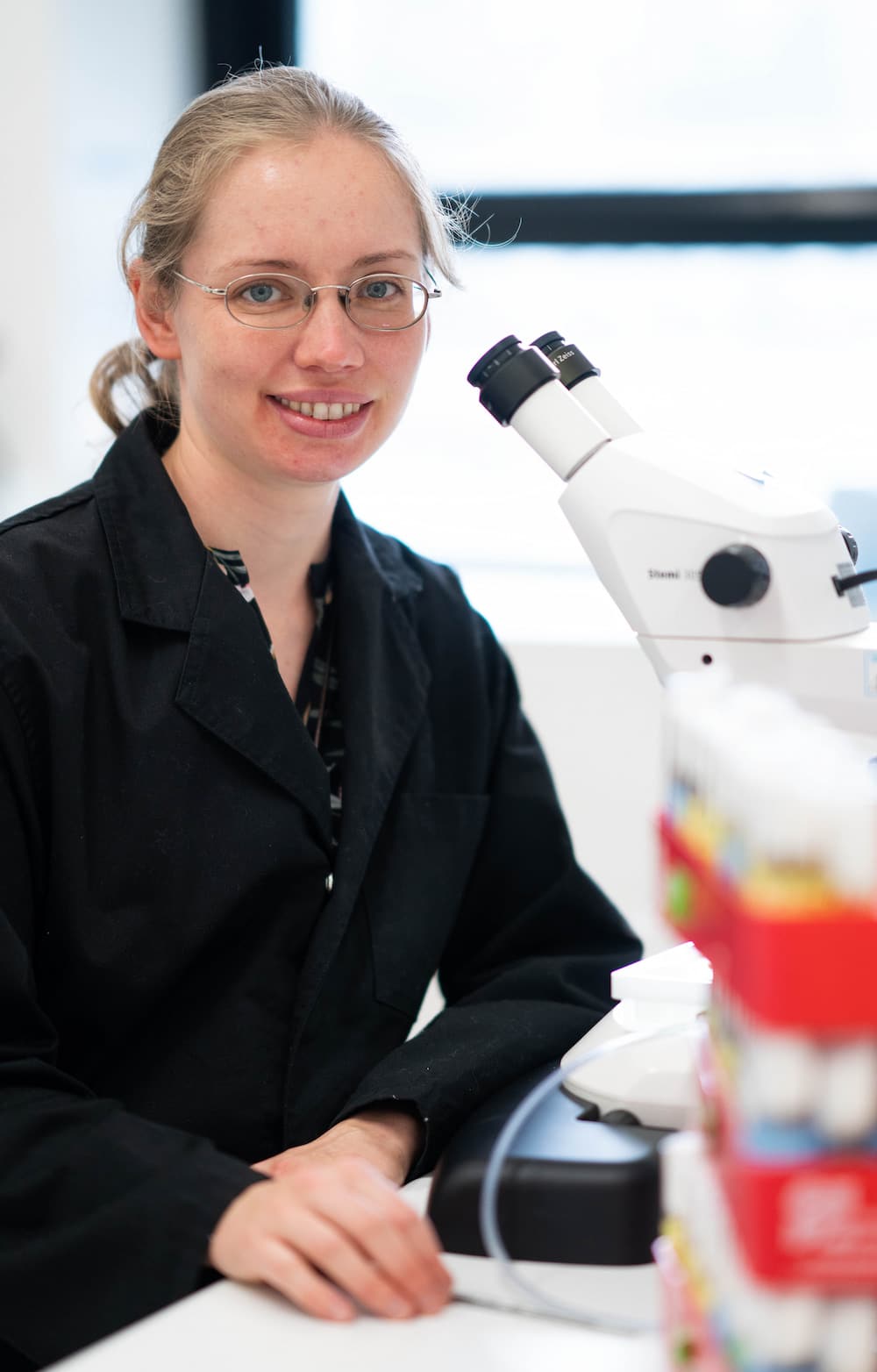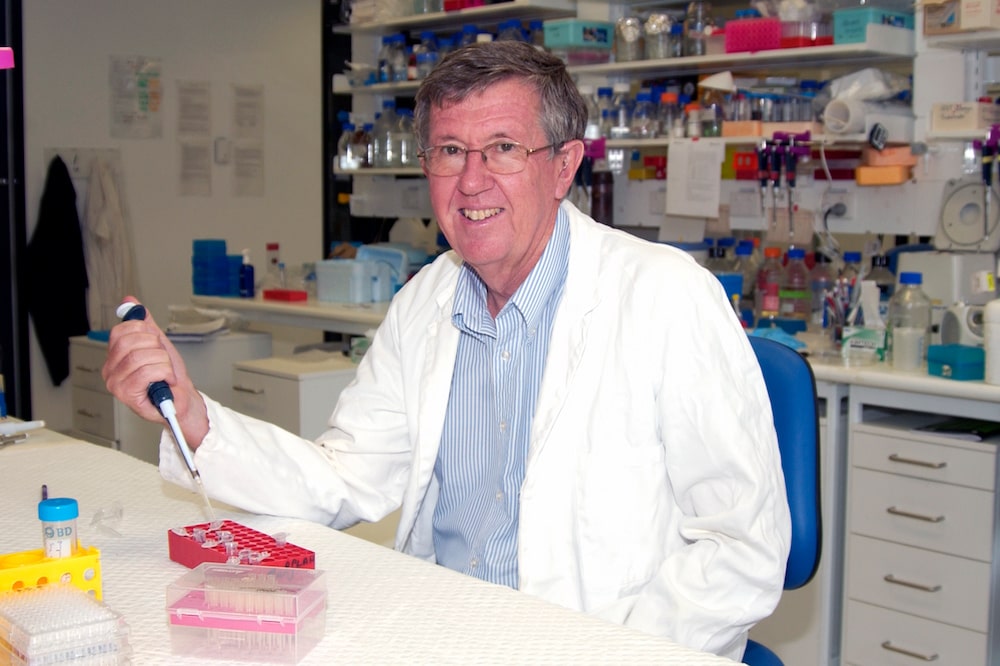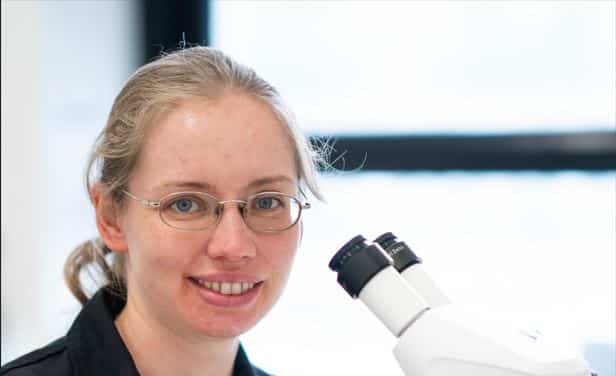No new targeted therapies have been developed for brain cancer for 30 years, but Dr Olga Zaytseva, a scientist at the Australian National University, hopes her research will lead to new treatments.
So does the ACT Cancer Council, which awarded Dr Zaytseva a $75,000 research grant last week.
“It was terrific to be supported by the Cancer Council ACT, and I am very excited to embark on this project,” Dr Zaytseva said.
“A lot of our work has focused on using fruit flies to model how brain cancer develops. This grant enables us to move our research in a new direction, using human models, which means that we can learn a lot more about the disease, and hopefully make it a lot more clinically applicable.”
Emeritus Professor Philip Board also received a $75,000 grant, for his research into slowing or stopping the growth of drug-resistant cancers, such as breast cancer.
Both academics are from the John Curtin School of Medical Research at the ANU.
The Governor-General, the Hon. David Hurley AC DSC, and his wife Linda announced the grants last week.
From fruit flies to brain cancer therapy
Dr Zaytseva’s lab discovered that a mutated gene in fruit flies causes brain cancer (excessive cell growth) in the insects.
“If the same gene promotes growth in the fly, it might also be the same gene that promotes growth in humans,” Dr Zaytseva said.
Because fruit flies are genetically similar to humans, she explains, scientists can use flies to create “miniature models of how cells might behave in humans”, and manipulate the flies’ genes to see how they affect cell growth. (Humans and fruit flies share 61 per cent of disease genes, according to NASA.)

Dr Zaytseva will try to grow cancer cells inside human organoids (or ‘mini-brains’).
“They are little organs that are grown in a dish, that contain cell types normally found in the brain. When we grow the tumour inside these mini-brains, we’ll be able to see how normal cells and cancer cells respond to drugs, or how the disease develops, how the cells interact. That way, we can study both normal healthy cells and tumour cells.”
Currently, brain cancer patients have a 23 per cent chance of surviving at least five years, according to Cancer Australia (2014–18 figures).
“By the time the patient gets the cancer diagnosis, the disease is usually quite far advanced,” Dr Zaytseva says. “The progression of the disease is very debilitating for the patients. They suffer seizures and loss of functions: vision or mobility. So it’s a very difficult life for the patients.”
Dr Zaytseva’s goal is to develop therapies that can kill cancer cells in the brain while leaving healthy cells intact.
“Unfortunately, there haven’t been any new therapies in the last 30 years that are specifically targeted to the tumour type that the patients have. We know that there are very many different types of brain cancer, but unfortunately, our therapies at the moment don’t effectively target them. We think that’s part of the reason why there’s basically no increase to survival of patients over the last 30 years.
“We don’t have a therapy yet, but we have a strategy towards developing therapies. Our strategy involves learning as much as we can about the disease, so that we understand exactly how it develops … and how certain mutations cause the disease to progress faster.
“If patients have those mutations, we could tailor drugs specific for that signature… Drugs that will specifically target the disease … will be much more effective than one treatment fits all, which is the current approach.”

Blocking breast cancer
Professor Board’s project will determine whether the GSTO1 inhibitors his lab developed can slow or block the growth of different cancers, which may provide a new approach to the treatment of drug-resistant cancers.
“We are very excited to be able to test the capacity of GSTO1 inhibitors to prevent the survival of breast cancer stem cells, which are often the cause of a relapse after chemotherapy,” he said. “This research would not be possible without the generous support of the Cancer Council ACT.”
Dr Paul Craft, Chair of the Cancer Council ACT Research Committee and Board member, said: “A crucial part of reducing the impact of cancer is to support research into cancer. This new knowledge enhances cancer prevention and treatment, and we are proud of the excellent cancer research conducted in the ACT.”



